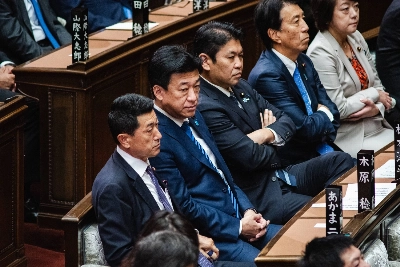HONOLULU/STOCKHOLM — The U.S.-India civilian nuclear agreement was signed into law this month after two years of negotiations and bitter debates. The final deal sharply divides arms control and nonproliferation specialists. The focus of an often-emotional debate revolves around a simple question: Is the deal a meaningful compromise that protects India's national security interests and the integrity of the Nuclear Nonproliferation Treaty (NPT) or does it give Delhi too much and undermine the NPT? That debate continues with no consensus in sight.
Unfortunately, potentially far greater consequences garner far less attention. In particular, little has been said about how this deal is seen in other countries, the precedent it appears to set, and the impact it has on U.S. leadership generally and especially on nonproliferation issues. These are equally critical concerns and, while we are still in early days, they may come back to haunt this agreement.
Make no mistake: Washington's decision to come to terms with Delhi offers hope to other governments considering nuclear weapons that they too may receive special status. India's insistence that it is a unique case — it never signed the NPT and it developed its own nuclear technology — is unlikely to make an impression on would-be proliferators that see India getting official recognition despite rejecting the NPT. Even if this is only hope masquerading as reason, it is likely to encourage proliferation: Will a democratic and nuclear-armed (but U.S. friendly) Pakistan, Iran or (your favorite future strategic partner) also get a pass?


















With your current subscription plan you can comment on stories. However, before writing your first comment, please create a display name in the Profile section of your subscriber account page.